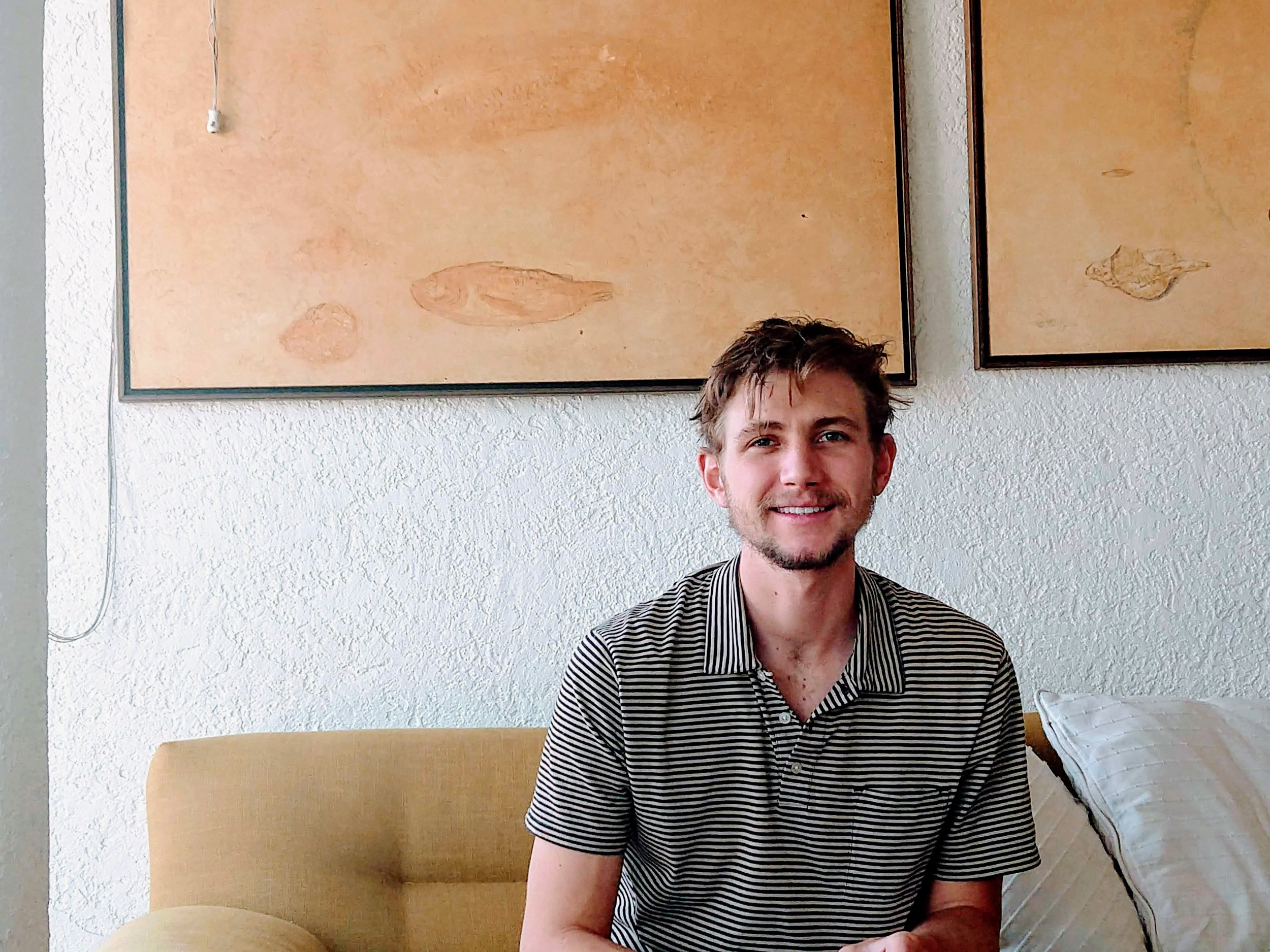
Colin Andrews
CAMARÓN
Today they announced the most incredible of all: two species of Crustacean, both amphipods, had been discovered in the Pacific Ocean. Like shrimp and prawns, these animals have an exoskeleton which molt while they grow, two pairs of antennae and one pair of compound eyes. They carry several mouth- parts, but these are mostly concealed. The new species elude anything that biologists and oceanographers previously thought possible in regard to Arthropoda. Despite their role as scav- engers and bottom-feeders, these crustaceans grow to colossal measures: approximately sixty feet in length and to a weight of over seven tons— like indomitable and indestructible insects that walk deep within the ocean.
Scientific investigations began in 2011, when an unidentifi- able organism washed up on the beaches of Sinaloa, Mexico. A team of scientists from the Pan-American Association of Oceanography were called in to conduct a forensic investiga- tion of the specimen, already decaying and pecked away at by seagulls, sea crabs and street dogs who frequented the beach in this area. After a week of intensive autopsy, the specialists concluded that the carcass was that of a giant squid (Architeuthis dux) that had prayed upon a juvenile gray whale (Eschrichtius robustus).
Two Monterrey Bay Area scientists on the investigation, also belonging to the Pacific Crustacean Society, were aggrieved by the verdict. They rejected the idea that the specimen was a yet known organism and plead for funding to begin probing deep sea trenches off the coast of Northern Mexico.
•
On Friday morning I walked up to Mercado De Zicatela, which sits on the bluff rising up from the beach. The market is mostly shut down. Not by order, but because activity in Puerto Escondido has slowed down so much that shop owners don’t bother setting up. The market is expansive and sits under a high-pitched roof where the ocean air rushes through. I was hoping to catch the woman who carries fresh cheese—queso Chihuahua, Panela, Oaxaca—but a corrugated metal door was pulled shut over her little shop. I ambled around picking up a few other grocery necessities: tomatoes and onions from Oaxaca’s friendliest woman; mangos and coffee from a man with a stand at the back of the market, the side that looked over the sea. As I paid, the man’s dark, glassy eyes gazed off behind me, fixed on the sea. With his vision cast, the man fished through his pockets for my change. Handing me back 12 pesos, he added, que te vaya bien, in a serene voice.
That day I was hungry, so with my sack full, I walked over to the concrete platform extending out from the market, where people normally sit and order meals from kitchens in the market and sat to peel some of the mangos I bought. I thought about the ways the cOVID pandemic touched this corner of the world: the shops closed down, the sandy streets quiet, empty and slowly filling with mangos that rot in the sun, animals that have reemerged now that the beaches are closed. There were sightings of crocodiles playing in the surf and sun basking on a beach nearby last week and coyotes lounging with their pups in the overgrown grass of soccer fields. Stories of the animal world returning home, while humans weather the storm in their caves. I looked out to the sea, spreading out down the hill, sinking way back until melding with the humidity that clouds the horizon.
A dark, industrial form began, piece by piece emerging from the ocean, near as far off as I could see. Its compartments showing themselves one by one, like blocky train cars fused together by flesh. The thing emerged, like a sea monster on the edge of the mapped world, and then disappeared, slow but with immense power, leaving the choppy sea waves to reform the vast tapestry that spread out before me.
Leaving, I passed once again by the man who had sold me the mangos. He looked up at me and simply said, camarón.
Colin Andrews (he/him) lives in Mexico City, and is from Colorado. He has been, among other things, a high school teacher, a waiter, and a canoe guide in Ontario, Canada. Colin is especially grateful to be able to participate in this first issue of The Thalweg as it provided an opportunity for him to reflect and write on a type of natural landscape that is not so familiar to him.

